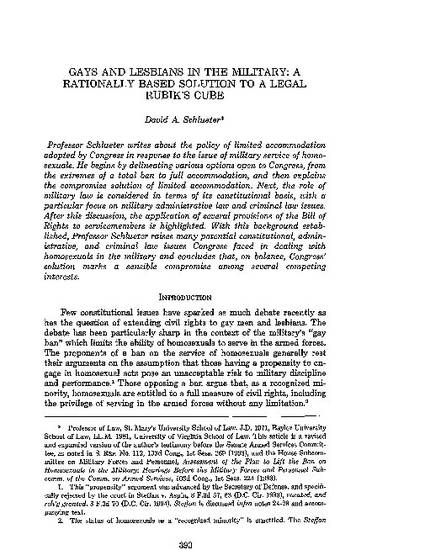
This article addresses legislation which was an attempt to accommodate homosexuals serving in the military. The author concludes that Congress had a rational basis for adopting a policy of limited accommodation. The issue of homosexuals in the armed forces presented Congress with a significant challenge to the exercise of its constitutionally-based powers to regulate the military. Prior to the enactment of the “don’t ask, don’t tell” policy, homosexuals were banned from service in the United States military. Congress had the option to continue the ban on homosexuals in the military, become fully accommodating by allowing them to serve openly, or create a compromise in the middle. Congress’ choice of limited accommodation was argued as the best solution due to issues regarding Constitutional rights, military administrative law, and military criminal law. The military is a separate society with standards and disciplines that the average United States citizen would find unbearable. Due to the separate society status of the military, many of the constitutional rights that apply to civilians do not apply to service members. While the “legal Rubik’s cube” is not yet fully solved, Congress’ careful consideration and action provided a sound basis for concluding that it properly exercised its Constitutional powers.
